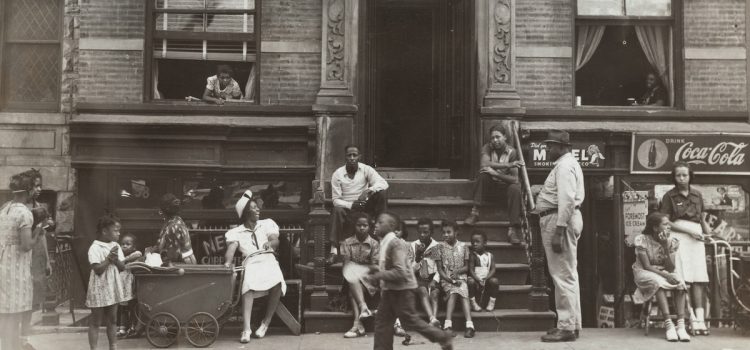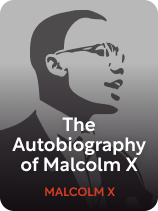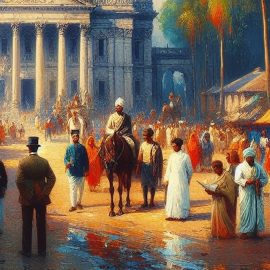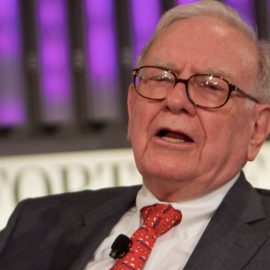

This article is an excerpt from the Shortform book guide to "The Autobiography of Malcolm X" by Malcolm X and Alex Haley. Shortform has the world's best summaries and analyses of books you should be reading.
Like this article? Sign up for a free trial here.
Why did Malcolm X move to Harlem? How did he get pulled into the underground crime scene?
The Autobiography of Malcolm X chronicles the time Malcolm X spent in Harlem from 1943 to 1945. As a young man in his late teens, Malcolm X got drawn in by a rough crowd on the tough streets of New York City, and he entered adulthood by sliding into a life of crime.
Continue reading to learn about Malcolm X in Harlem.
Malcolm X in Harlem
When Malcolm X was a teenager living in Boston, he had a few different jobs and eventually landed a gig as a cook on a train. At first, he excelled at this job because, he explains, he acted like an “Uncle Tom”—a Black person extremely devoted to serving white people. The train sometimes took him to Harlem, and, the more time he spent there, the more he loved it and the more uninhibited he became in his interactions with white people. It showed in his work, and ultimately he was fired for being disrespectful to passengers. At 17, in 1943, he moved to Harlem to work at a nightclub called Small’s Paradise.
(Shortform note: At this time, railroad work was one of the most elite occupations a Black man could attain—racist attitudes meant that Black people were continually relegated to servile positions, and the Pullman Company, for which Malcolm X worked, capitalized on this by exclusively hiring Black people to serve passengers. The servile attitude expected of these workers was similar to that of Uncle Tom—the titular character of Harriet Beecher Stowe’s 1852 novel Uncle Tom’s Cabin—in stage productions of the novel. Although he displays courage and solidarity with other enslaved people in the novel, Uncle Tom was portrayed on stage as someone who would do anything—including betraying other Black people—to satisfy whites.)
Malcolm X, in Harlem, learned about the area’s history from his customers at Small’s Paradise. He found out how it came to be an all-Black area and why it seemed to cater to whites anyway (it was the Harlem Renaissance, a period of Black cultural enrichment, and white people enjoyed consuming Black entertainment). He also learned about the rules of hustling—making money through illicit means—from his customers, especially those few who were involved in the underground crime scene. Malcolm X explains that the criminals he knew became criminals because white society deprived them of the opportunity to fulfill their true potential—they turned to crime in order to survive, and they did drugs to help them deal with the pressure.
(Shortform note: Underscoring the degree to which Harlem catered to whites, experts note that Small’s Paradise was the only major nightclub in Harlem that Black people were allowed to attend. It outlived every other Harlem nightclub, finally closing in 1986. According to some criminal justice experts, hustlers like the ones Malcolm X encountered at Small’s Paradise are particularly susceptible to being caught and incarcerated, in part because they’re typically too poor to afford a lawyer. Other experts explain that, as Malcolm X argued, people are much more likely to turn to crime when they’re impoverished—and Black people are more likely to be impoverished than whites.)
Malcolm X, too, would start committing crimes and doing drugs to get from day to day. For example, he says that he sold marijuana, got involved in the illegal gambling scene, and started doing cocaine so that he could steel himself for robbery. Over time, this began to catch up to him—he felt emotionally lifeless, and the drugs were making him sick. After an altercation with another hustler almost ended in violence and led him to go on a multi-drug-fueled bender, Shorty took him back to Boston in 1945.
(Shortform note: Malcolm X says that he became addicted to drugs because they helped him cope with his difficult life, and experts on substance use say that this is one of the primary causes of addiction. They note that people are often motivated to start using drugs by escapism—a desire to avoid your present reality because it’s too painful to cope with. Intoxicating drugs activate the reward center in your brain, making you feel better than you did when you were sober—and with repeated use, you become addicted. Experts also note that this is a vicious cycle: You want to escape your life, so you do drugs; then, because the drugs lower your inhibitions, you make violent or criminal choices, giving you even more to escape from.)

———End of Preview———
Like what you just read? Read the rest of the world's best book summary and analysis of Malcolm X and Alex Haley's "The Autobiography of Malcolm X" at Shortform.
Here's what you'll find in our full The Autobiography of Malcolm X summary:
- Malcolm X explains why he believed what he believed
- The historical and sociological context surrounding Malcolm X’s life
- Why Malcolm X was such a controversial figure






